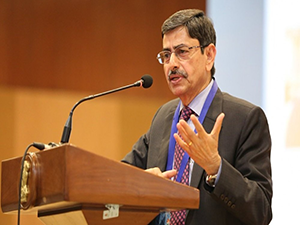New Delhi (24.09.2024): The Opposition caused ruckus and all hell broke loose when MPs were handed over Constitution of India on the first day of Parliament session in the new Parliament building on September 19, 2023 that did not have ‘Socialist’ and ‘Secular’ words in its preamble. Only this week, Tamil Nadu governor R N Ravi while speaking at an event in Kanyakumari district stoked controversy by saying that the concept of secularism is European and India doesn’t need it. Ravi further said that the concept emerged over a conflict between the church and the king while Bharat is a dharma-centric nation. Why did a governor make a comment on secularism and what was the provocation?
Congress general secretary in-charge of communications Jairam Ramesh swung into action slamming Ravi that he is ‘only a trial balloon floater’ who is echoing what Prime Minister Narendra Modi wants to get done. The BJP and other saffron outfits always had a very clear stand on the issue of ‘Socialism’ and ‘Secularism’ which for them was added in the Preamble in 1976 when the entire Opposition was in jail during National Emergency.
They cite Constituent Assembly debates to get legitimacy that saw Dr B R Ambedkar arguing that there was no need to include the term ‘secular’ as the entire Constitution embodied the concept of secular state, which meant non-discrimination on grounds of religion and equal rights and status to all citizens. Non-discrimination on the basis of religion is very innate to Indian ethos is the argument the BJP and its cohorts come up with.
Undoubtedly the concept of secularism is European so is the case with the Constitution which itself is eclectic in nature including democracy, federalism, rule of law and many such other concepts. Loosely secularism was introduced by German Reformation leader Martin Luther who rejected religious and political authority of the papacy and the Holy Roman Empire in favour of secular authorities amenable to Protestantism. French ecclesiastical statesman John Calvin too championed the concept of separation of religious and the secular institutions in governance. In United States secularism tends to carry anti-religious connotations and is rarely used outside academia to refer to the separation of church and state.
What Ravi has done seems to be an attempt to fathom the situation if it is congenial to introduce another major constitutional reform after Waqf Bill introduced in Parliament and One Nation, One Election passed by cabinet. Interestingly a similar matter is in the court to decide how can an Indian citizen take a resolve on something from January 26, 1950 that came into existence in 1976. Ravi had been stocking controversy in the past as well but for a seasoned bureaucrat making a controversial statement is little difficult to believe on its face value. Apparently, it is done with a purpose as secularism in the Constitution is a swindle for many done when civil rights were curtailed and democracy was at perils. But various judicial interpretations have made it clear that Secularism is part of the basic structure of the constitution which cannot be trampled upon.
The Supreme Court of India in Kesavanand Bharati vs State of Kerala ruled secularism as part of the basic structure of the Constitution in 1973 that cannot be amended by Parliament. The court also established the doctrine of basic structure, which states that the Constitution's fundamental features are protected from amendment. But Parliament is still Supreme authority to make laws and SC can only interpret the law is the basic framework laid down and any such amendment is certainly going to pit judiciary and legislature against each other. Is the Modi dispensation getting ready to take another such move which could have major repercussions?
(By Vinod Kumar Shukla)






























